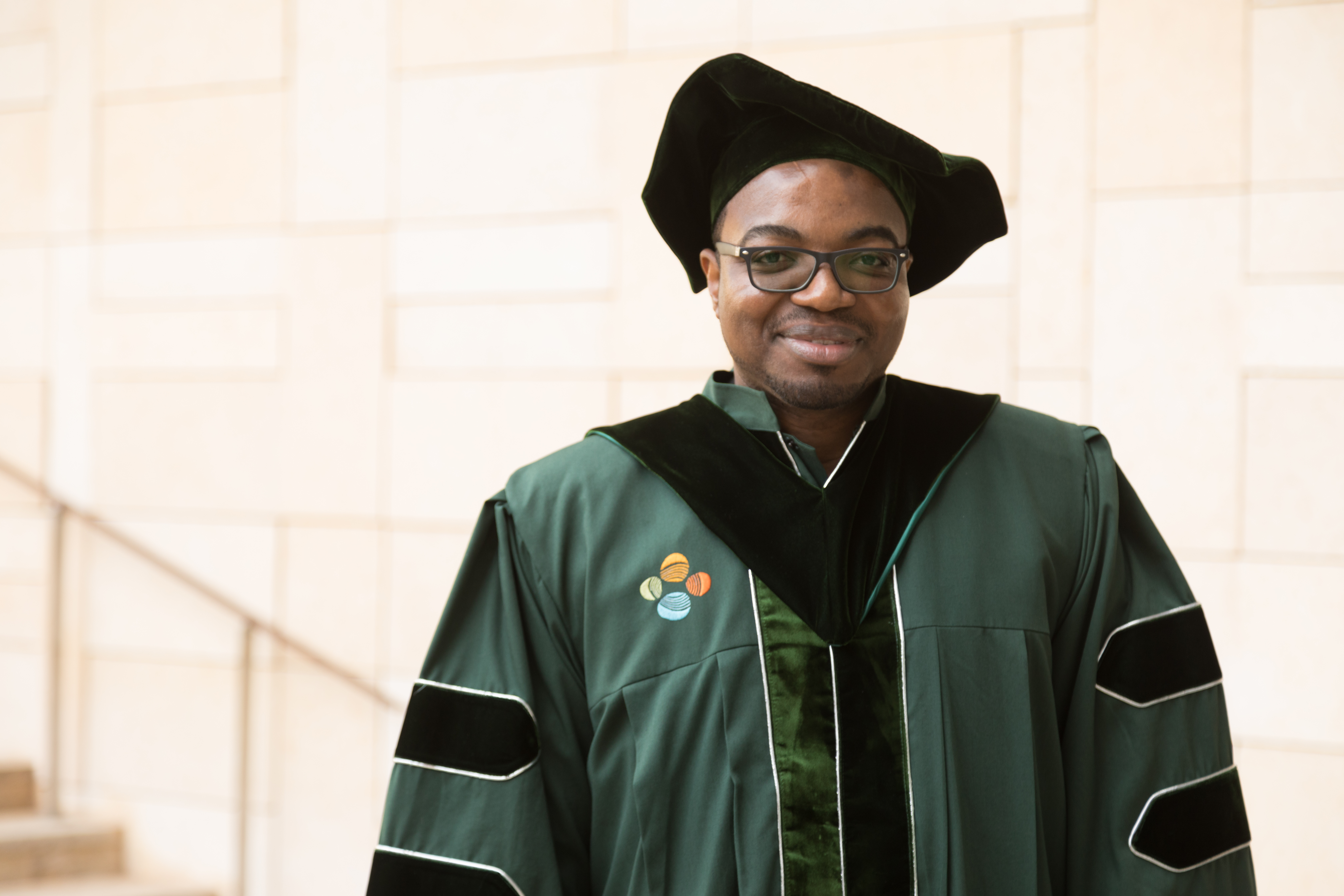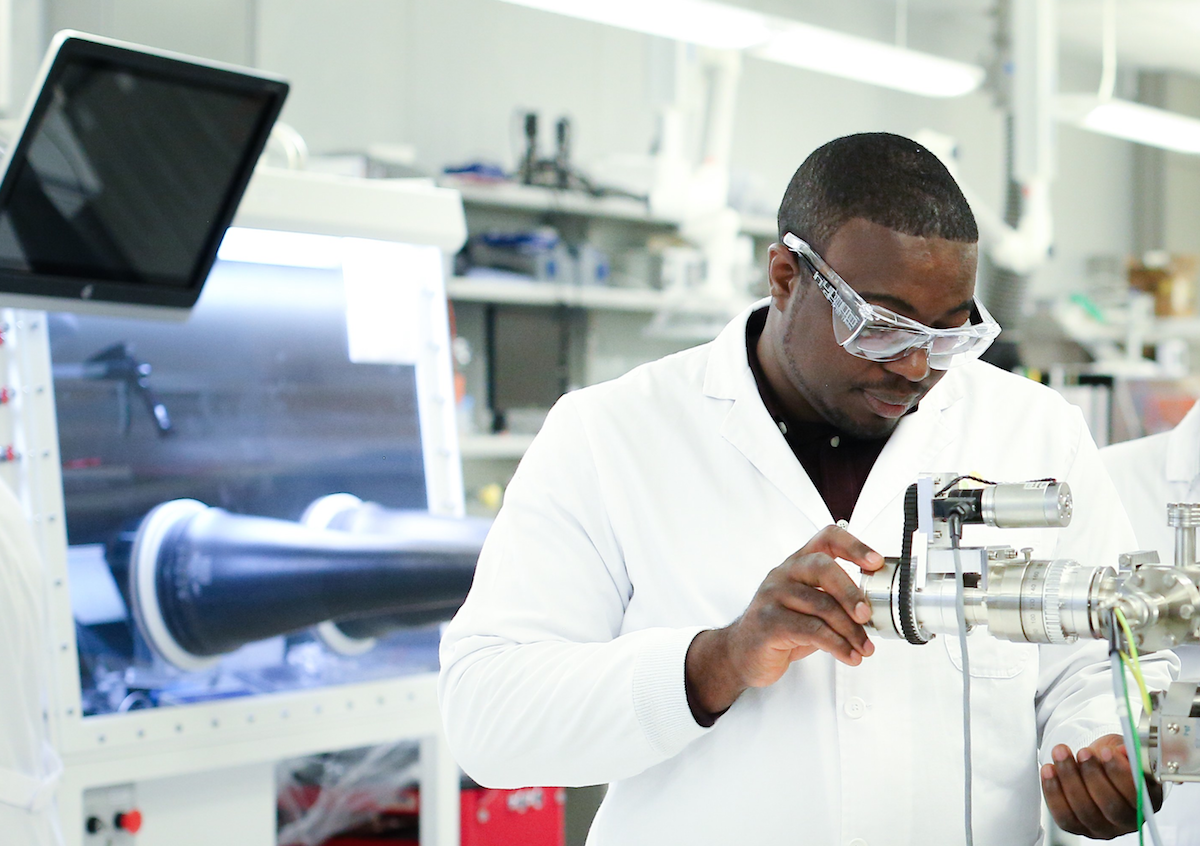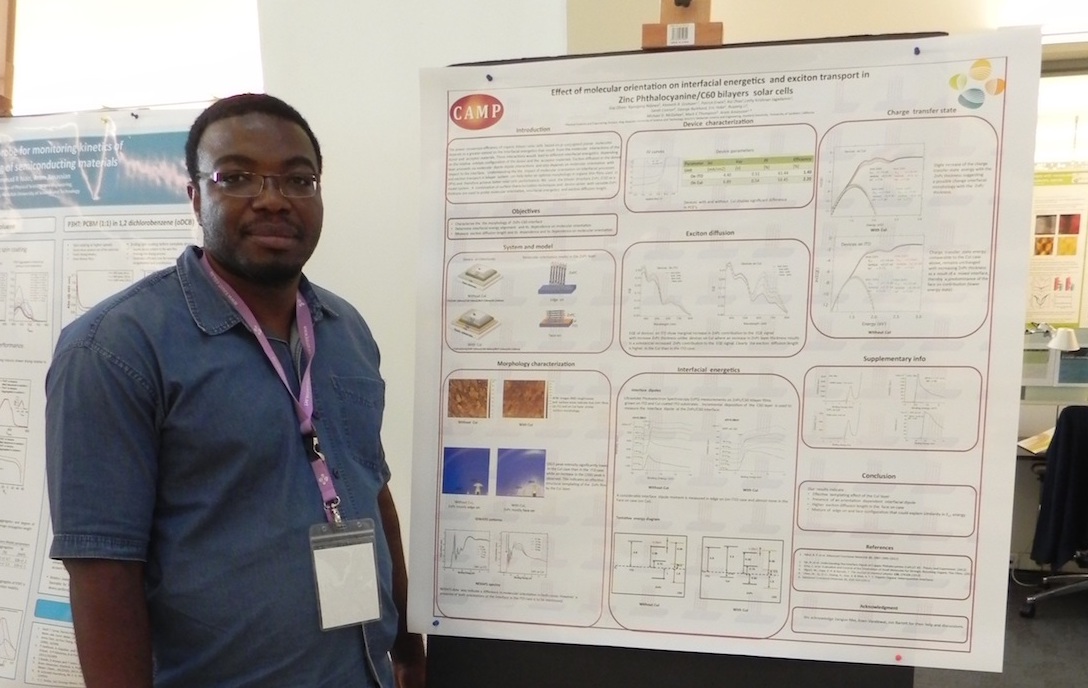Alumni Focus: Guy Olivier Ngongang Ndjawa (Ph.D. '16)

KAUST alumnus Guy Olivier Ngongang Ndjawa (Ph.D. '16, material science and engineering) is now a postdoctoral researcher at Princeton University. Photo by Helmy Al Sagaff.
-By Meres J. Weche, KAUST News
Guy Olivier Ngongang Ndjawa, a native of Cameroon, received his Ph.D. in material science and engineering from KAUST in 2016, with his research focusing on thin film organic solar cells. He has since joined the Organic and Polymer Electronics Laboratory at Princeton University (U.S.) as a postdoctoral researcher.
"I still remember vividly what led me to come to KAUST," he recalled. "I was still a student at Stellenbosch University in South Africa when a team from KAUST came over to give us a presentation in November of 2009." Ngongang Ndjawa was immediately intrigued by the vision of the University and the commitment to ensuring KAUST would become a leading scientific and research destination.
"I was very tempted to be part of this new adventure," he noted. Ngongang Ndjawa successfully applied and joined KAUST as part of the material science and engineering program in August of 2010.
"It was a real pleasure to be [at KAUST]. I worked with an excellent advisor and was given the opportunity to immerse myself in research involving a lot of high-end vacuum processing and spectroscopy tools that were not available in many places," he said.
Conducting research at KAUST
Ngongang Ndjawa joined KAUST an exciting time for his group when the University was already up and running but the research laboratories were still expanding.

KAUST alumnus Guy Olivier Ngongang Ndjawa (Ph.D. '16) found the University's cutting-edge labs were essential for his research work. File photo.
Ngongang Ndjawa had the chance to work on a state-of-the-art tool from a well-known German company called Omicron that was an ultra-high vacuum (UHV) system. The component allowed the KAUST group to deposit material on a high vacuum through a molecular beam epitaxy chamber.

In September of 2013 while he was still a student at KAUST, alumnus Guy Olivier Ngongang Ndjawa (Ph.D. '16) won third place in the poster competition for the 1st International Workshop for Energy Storage. File photo.
One of the reasons why this is such a powerful tool is that the chamber gives the ability to achieve high-resolution imaging of the material at the molecular scale through scanning tunneling spectroscopy.
"I work at the molecule scale to try to understand how the molecular organization and molecular structure of the materials impact device performance—meaning the photovoltaic cell's performance. I also look at how the process of fabricating the cell in the lab affects the end properties of the design," he noted. "I also had to spend a lot of time actively fabricating solar cells. It was a nice experience because I got to be exposed at various levels to different types of challenges—it was very rewarding."
The power of networking
In addition to providing cutting-edge laboratory equipment, Ngongang Ndjawa noted that the University provides great networking opportunities through its commitment to making resources available for students, postdoctoral fellows, research scientists and faculty to attend international conferences in their fields. KAUST also hosts great conferences on campus.
Alumnus Guy Olivier Ngongang Ndjawa (Ph.D. '16) noted that he enjoyed attending conferences internationally and on campus while a student at KAUST. He is pictured here with fellow Ph.D. graduates Ahmed Mansour and Rahim Munir and KAUST Professor Husam Alshareef, who attended the 2016 Materials Research Society Fall Meeting & Exhibit in Boston, Massachusetts, with him. File photo.
It was actually through one of the conferences on photovoltaics organized by the KAUST Solar Center that Ngongang Ndjawa connected with Dr. Lynn Loo, a renowned faculty member from Princeton, which led him to his current role.
Pursuing research in a new setting
"Even after having moved on to a postdoc at Princeton University, all these connections are still very active," Ngongang Ndjawa asserted. "I also built a lot of personal connections at KAUST, so I'm still in touch with a lot of people. We are now around the world."
As he starts building his new network at Princeton, Ngongang Ndjawa finds that KAUST is very well-known within his current science and engineering circles.
He is still working on organic photovoltaics at Princeton, but he has taken a different orientation from the focus of his Ph.D. to look more at novel types of applications. He is now investigating how to use organic photovoltaics to not only provide power but also function for new generations of devices in the realms of the internet of things (IoT).
"It's an excellent experience being at Princeton. It's an environment with a lot of intellectual vitality. People know a lot about what they're doing and they're willing to collaborate to share their experiences, so it's really a great environment for work," Ngongang Ndjawa said.
Related stories:

